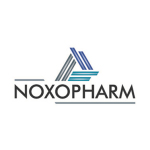FDA IND Approval Leads to CEP-2 Kickoff
SYDNEY–(BUSINESS WIRE)–#Veyonda–Australian clinical-stage drug development company Noxopharm Limited (ASX:NOX) today announced its CEP-2 study will begin shortly. CEP-2 is related to the Investigational New Drug (IND) approval of Veyonda� by the FDA based on evidence that Veyonda may increase generally poor response rates of sarcoma cancers to chemotherapy in combination with common chemotherapy drug, doxorubicin, for patients with soft tissue sarcomas. The announcement marks the Company�s commitment to act on this valuable opportunity with the appointment of a contract research organization to oversee the study.
Sarcoma was deliberately selected as a rare cancer carrying important funding and regulatory approval benefits including seven-year exclusive marketing opportunities. Sarcomas have very limited treatment options with only an estimated 14% of soft tissue sarcomas responding to chemotherapy. The Company is confident that Veyonda, with its unique mix of immunotherapy actions, has the means to increase both survival and response rates significantly when combined with doxorubicin.
�Soft tissue sarcomas are in that basket of cancers where there has been remarkably little advance in survival statistics over the past few decades, and the horizon has appeared to hold little reason to think that would change,� said Graham Kelly, CEO of Noxopharm. �What we have seen to date with Veyonda both pre-clinically and clinically gives us confidence that a combination of Veyonda and doxorubicin has the capacity to deliver that change.�
About Noxopharm
Noxopharm Limited (ASX:NOX) is an Australian clinical-stage drug development company focused on the treatment of cancer and septic shock. Veyonda� is the Company�s first pipe-line drug candidate currently in Phase 2 clinical trialling. Veyonda has two main drug actions � a moderating effect on the ceramide/sphingosine-1-phosphate balance and inhibition of STING signalling. Activity against the former target contributes to its dual-acting oncotoxic and immuno-oncology functions designed to enhance the effectiveness and safety of standard oncology treatments, i.e., chemotherapies, radiotherapy, and immune checkpoint inhibitors. Activity against the latter target provides an anti-inflammatory effect, also contributing to an anti-cancer action, but also potentially blocking septic shock.
Contacts
Jane Byram
SCORR Marketing
512-626-2758
[email protected]







